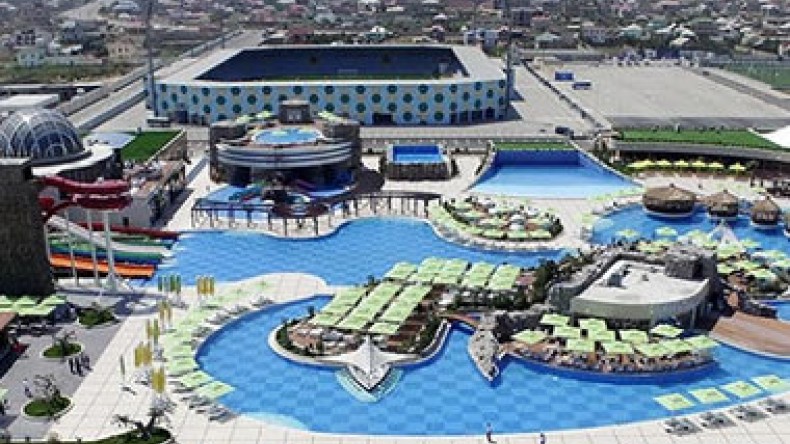
Azerbaijani lawyer offers segregated beaches in order women not to be attacked by men
The contrast between the Azerbaijani government’s secular orientation and the country’s increasingly pious population is coming into sharp focus in a seaside town about an hour’s drive from the Iranian border, the American portal EurasiaNet.org writes.
Lankaran, a town of about 80,000 situated along the Caspian Sea, has gained a reputation over the past few decades as a bastion of piety. It also has an array of beguiling beaches.
The portal reports that most local women, in keeping with traditional Shia Islamic beliefs, are wary of men seeing them in a swimsuit. Thus, many females in Lankaran tend to shun the sun and surf.
“Showing your body to men is against our belief and we prefer not to go swimming to stay away from sinning,” a local believer explained to EurasiaNet.org.
The article reads that looking forward, a 33-year-old Lankaran lawyer, Sadraddin Kazimov, aired an idea in early August that aimed to satisfy local preferences while enabling women to relax on the beach: he called for the construction of “a high fence” on public beaches to segregate men from women.
“This is our religion and this is our right to follow religious rules. Suntanning is good for our health. It is the responsibility of the government to take care of our health and rights,” he wrote on August 1 on his Facebook page.
Kazimov’s post has attracted robust interest in the Azeri-language media, and generated vigorous debate on Facebook. Kazimov is now considering setting up a formal organization to lobby on behalf of the beach fence plan.
The deputy head of Lankaran’s executive committee, Mohubbet Babayev, told EurasiaNet.org that his office would consider the proposal for segregated beaches when it is submitted. Azerbaijan will serve as host of the international Islamic Solidarity Games in 2017. Informally, some elected officials seen as sympathetic to President Ilham Aliyev’s administration express a dim view of the idea, suggesting that implementing such a plan would damage the country’s secular image.
Prominent theologian Elshad Miri, the owner of two religious bi-weeklies in the capital of Azerbaijan, Baku, called the idea of separate public beaches for men and women “positive discrimination.”
“Men and women play soccer separately, boxing tournaments for men and women are separate. There always should be alternatives. This is a right of religious people that needs to be respected,” Miri said.
In keeping with that view, many Lankaran women “also want a separate café, teahouse for women where they would feel more comfortable,” the female director of the city’s Southern Resources Center for Human Rights Esmira Turhida said. “That does not mean people in our region are not modern. No. We just have our own culture and moral values that we want to preserve.”
Though the number of Azerbaijani women wearing hijabs has increased in recent years, no store in Azerbaijan appears to sell so-called Islamic swimwear, often dubbed a “burkini” — a hooded, long-sleeve, knee-length shirt over leggings of similar material. But Kazimov does not see such attire as a solution. “There is no guarantee that women, away from the shore, underwater, will not be attacked by men.”
Earlier, Azerbaijani religious figures, expressing their attitude towards men and women going to the same beach, said special beaches should be allocated for women in hijabs.
Related:
Religious figure: Men and women must not undress and walk in front of each other in Azerbaijan
Newsfeed
Videos






























